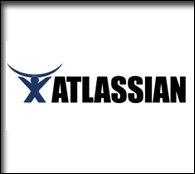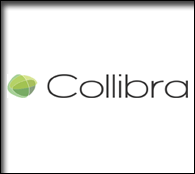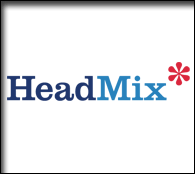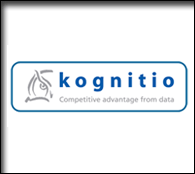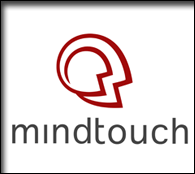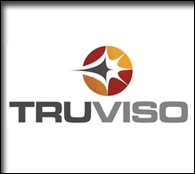Archive for May, 2008
Beyond Incrementalism 2.0
by Eric Norlin on May.27, 2008, under defrag "theory", industry stuff
I spent some time this weekend “thinking big” about the state of things in our little world called “technology.” What spurred it on was several conversations I’ve had as of late (with folks like Jeff Nolan and others) where this idea that “everything has just gotten incremental” started to creep in. Tim O’Reilly alluded to the same thing in a recent post when he wrote about the need for companies like Microsoft and Yahoo! to have “big, hairy, audacious goals.” To be clear, I don’t think that there aren’t great vendors out there doing innovative things (heck, we’ve got some great defrag sponsors doing just that), it is more like the “industry” (big “I”) as a whole has settled into an echo chamber of “incrementalism” where the biggest issue we can wrestle with is FriendFeed versus Twitter.
A lot of this is driven (I think) by the economic slowdown. In slower periods, you’ll see the collective begin focusing on “cost-reduction” or “productivity enhancing” technology, while they simultaneously scramble to “monetize” the tools not related to that. It happened during the dotcom bust, and I think its happening — to some extent — now. One of the tertiary events from this line of thinking is that a lot of the tech conference scene gets very boring, very fast. The reasoning is pretty simple: tech conference producers believe that sponsors will only sponsor if they have the right leads (not a bad belief), but they then jump to another belief that enterprise IT people (broadly speaking, a “lead”) will only be interested in “cost-reduction” stuff (because of the slowdown). So, you get this self-perpetuating cycle of “how to squeeze the most out of your IT budget,” or “how to keep your CIO job in a slowdown” drivel.
The dirty little secret is that no matter what the economic environment is like, there are smart people in enterprise IT (and in the development world) that are paid to think about and solve big, hairy, audacious problems. They will come to tech conferences — they just won’t come to BORING tech conferences. In other words, incrementalism sets in (in both technology and conferences) and then….well - things feel a little “flat.”
All of that precursor had me thinking about why (and how) we started Defrag. Defrag’s initial spark came from Brad’s blogging about “information overload.” Brad (and I’m paraphrasing him, so upfront apologies) was thinking about how he’d like technologies that could help him to deal with the flow of information that he was drowning in on a daily basis. That spark developed through conversations into the idea that we had a big problem to solve: how to deal with information overload in such a way that it actually brought about insight more quickly. That “moment of insight” (”aha moment”) led to Defrag’s unofficial tagline being “accelerating the aha moment.”
Initially, that idea got called the “implicit web,” and it tended to be focused on the individual. As we explored things, though, we (at least, I think I can include Brad in this) came to see that the big, hairy problem wasn’t just an implicit web one. It was actually a problem that sat at the intersection of a bunch of technologies. Suddenly, we were thinking about and talking with people in the “enterprise 2.0″ space, the implicit web space, the semantic web space, and even the social networking space. In other words, the technologies involved weren’t what we were “throwing defrag” for — rather, the bigger problem-set was (is) what Defrag was (is) all about (the technologies were pieces of solutions).
None of that is to say that enterprise 2.0 technologies, or semantic web technologies, or implicit web technologies aren’t trying to solve big hairy problems. What it is was saying is that those big hairy problems are part of a larger, bigger, hairier, bigfoot-like problem — and that if we could get the disparate parties, be they vendors or developers or enterprise IT folks, talking about the bigger problem, we might find ourselves getting beyond something incremental and to something really important. The sum really would be greater than the parts.
I love big topics like that. I love big topics like that even more in periods like this. While everyone else rails against the reverberations of the echo chamber incrementalism, a group of people will gather to really think hard and try to solve something that none of us have yet to even *phrase* very well. Defrag’s attendees (participants) are people that have a sense of that big problem coming in. And, for the most part, I think they know they can’t solve with a suite license from big vendor X. They know these are all tools in process - and I think they even come to prod vendors into thinking about what they could be doing differently. The energy, community and connection lies in the problem.
Somewhere out there is a step beyond incrementalism. I can’t wait to be there as a bunch of smart people tease that thread out of this tangled mess.
A quote that makes me happy
by Eric Norlin on May.23, 2008, under general
Over on Twitter, Bradley Allen (of Siderean) said something that makes me exceedingly happy. Talking about the tech conferences he’s been to lately, Bradley said: Â ”BTW FWIW at these old-school conferences i’ve been at i kept thinking about how much more vital and useful Defrag was in comparison.” Thanks Bradley - you made my weekend!Â
Defragging technology solutions
by Eric Norlin on May.22, 2008, under defrag "theory"
Yikes. Apologies for the lack of blog posts - the month of May is flying by.
I’ve been reading this post by Dare Obansanjo wherein Dare takes up the subject of “web 2.0″ adoption — or, more specifically, that early adopters are not the same as mainstream adoption. The point of the post is summed up in the ending question: “…we solving a problem that everybody has or are we building a product for Robert Scoble?”
In the context of enterprise adoption, I think its an especially good question.
We never started Defrag to deal with “web 2.0″ topics. Rather, we wanted to tackle the broad problem of information overload and how it is that technology can help to discover, sort, organize, and make useful that overload (”accerlerate the aha moment” if you will). As I look at Defrag sponsors and potential sponsors, you can see a broad swath of tool sets that get used both in the enterprise and, more strictly, by end users. That swath includes “enterprise 2.0″ (collaboration) technologies, semantic technologies and implicit web technologies. And, as I speak with folks, I’ve started to get a sense of what technologies are further into the uptake cycle than others.
To be clear, Defrag is an early adopter conference. We have lots of great enterprise folks that are thinking about BIG problem-sets and working on solving those early things. That said, you can feel that some technologies like social bookmarking in the enterprise, or social networking in the enterprise, are definitely experiencing more uptake this year than others.
The “unique” part of the Defrag conversation is watching how these technologies in different parts of the adoption cycle are interacting with each other to solve bigger problems. What does it mean, for instance, when you can tag information, discover it via social networks, search and recombine pieces of it and then feed it into different applications and uses via widgets and RSS. That process is not just *one* Defrag vendor — its a whole lot of them taken together. And really, I don’t think any of us would want that problem to be solved by one vendor (at least, I wouldn’t).
I guess in that way Defrag really is assembling the disparate bits of technology solutions. And I’d bet that that process of “defragging” will be what takes these solutions from early adopter to mainstream.
Like a double-stuffed Oreo
by Eric Norlin on May.06, 2008, under conference topics, speakers, sponsors
So much has been happening around Defrag as of late that, while I’ve been letting it all flow out through Twitter, I’ve neglected to update this space. So, a brain dump.
You should (by now) know that our advisory board includes:
Esther Dyson- Founder of PC Forum, and internet wise-person for as long as I’ve known the internet
Chris Shipley - The woman behind DEMO, and one of the smartest startup analysts I know
Paul Kedrosky - VC, TV-star (cnbc), and *the* smartest person I know about technology and all things financial services
Clay Shirky - Probably the most consistently inspiring internet “guru” around, and author of “Here Comes Everybody”
JP Rangaswami - Unquestionably, one of the leading “CIO-types” on the planet, and all around eclectic thinker
And, I’m extremely pleased to have all of them on board.
Recent sponsors that we’ve added include:
Connectbeam - enterprise social bookmarking and social networking
coComment - folks working on the conversation in the comments
Jive Software - enterprise collaboration and community software
blist - democratizing the database
HiveLive - Online community and social networking folks
MindTouch - Open Source wiki and content management
Fuser - tools for simplifying online activities
Talis - Semantic web application platform
….and several others that I can’t speak about yet.
We’ve also confirmed speakers like:
Professor William Duggan - Strategic Intuition and Defrag
Kevin Merritt - The Democratization of Data
Perry Mizota - Knowledge Networking and Ambient Intimacy
Sam Lawrence - On collaboration, analysts, going big and controversy
Charlene Li - Harnessing the Implicit Value of the Social Graph
Marty Betz - Observing the invisible through aggregating information tomography
Paul Miller - On Semantic topics and users connecting the dots
Brian Oberkirch - Under Sousveillance: Personal Informatics & Techniques of the Self
Lane Becker - Being like the internet
Puneet Gupta (and a great customer) - On rolling out a massive social bookmarking project
…and many others.
And, lastly, we KNOW we’re going to cover topics like:
Finding serendipitous information through context
Users connecting the dots - making the unstructured structured
Getting to relevancy through identity
Visualizing Data
Next-level discovery (what the hell does that mean?)
…and you can still tell us what we should add to this.
All of that, and its only May (so it only gets better from here). Needless to say, I’m psyched. And I hope you’ll join us.
A great “post” by Sam and Stowe
by Eric Norlin on May.05, 2008, under defrag "theory"
Okay, its not really one post - but Sam Lawrence started something interesting this morning with this blog post:
“The new inbox needs to be a goldpan…It should not only cut the rapids back to a quality stream but help me channel my attention so it’s applied where it counts. It understands and shares which people and topics I’m most connected to. It pools conversations of interest and conversations that need action. Perhaps it even routes streams where I’m blocking. Ultimately, my new inbox needs to turn the perfect storm into a bubbling brook. “
And Stowe is following it up:
“I think that an open model of communication could be applied in other contexts, ones that are significantly more constrained than the global model that Twitter and other open social applications have leveraged. Clearly defined groups — like those explicitly working on a project together — will share access to project-related streams of information, but less clearly defined ‘groupings’ — all those Workstreamer users interested in Ajax or User Experience Design, for example — will share streams of information made public by others in the community of Workstreamer users.”
Check both posts out.
